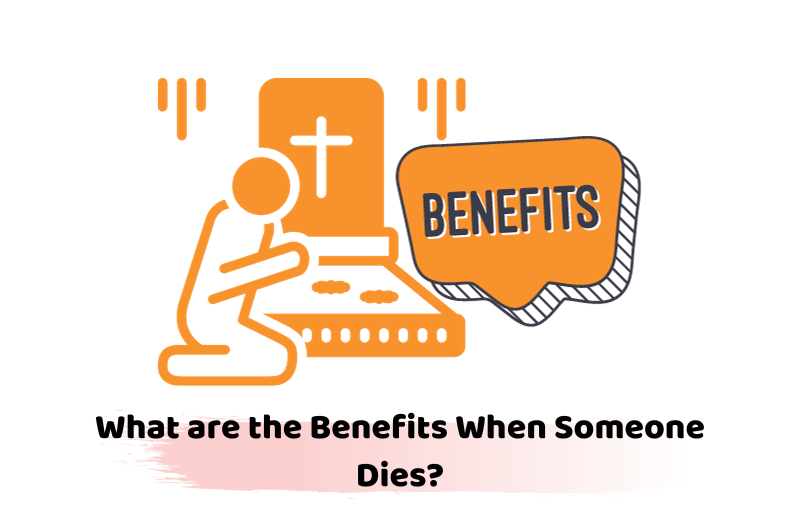Have you lost a loved one recently and looking for payment benefits when someone dies in the UK? This guide will help you in discussing the eligibility criteria for the Widowed Parent’s Allowance in the UK and the benefits of the Bereavement Support Payment. However, to be eligible for the Widowed Parent’s Allowance, you generally need to be under State Pension age and have dependent children.
The Bereavement Support Payment includes benefits such as financial aid for up to a certain extent of months and additional support for those with dependent children. Let us get started with the discussion to dig into more details on this.
Get in touch with one of our experts to learn more about the benefits when someone dies. We are available from 9:00 am – 05:30 pm Monday to Friday.
Bereavement Support Payment
The payment consists of an initial lump sum and up to 18 monthly payments, depending on individual circumstances. The amount received is based on the deceased person’s National Insurance contributions.
How to Make a Claim for Bereavement Support Payment?
To claim Bereavement Support Payment in the UK, you can start by contacting the Bereavement Service helpline or visiting the official government website. Remember to reach out to the official sources for accurate and up-to-date information.
What is the Eligibility Criteria?
To be eligible for Bereavement Support Payment in the UK, certain criteria must be met. The payment is available for widows, widowers, or surviving civil partners who are under State Pension age. You must have been married to or in a civil partnership with the deceased person at the time of their death.
Additionally, you must be living in the UK or a country that is part of the European Economic Area (EEA) at the time of the person’s death. It’s important to note that eligibility requirements may vary, so it’s best to visit the official government website or contact relevant authorities for specific details based on your situation.
What are the Benefits of the Bereavement Support Payment After Someone Dies?
The benefits of the Bereavement Support Payment include financial support for up to 18 months, the option to receive a lump sum or monthly payments, and additional support for those with dependent children. To learn more about the specific benefits and eligibility criteria, it is recommended to contact the Bereavement Service helpline or visit the official government website.
Funeral Expenses Payment
It is available to individuals receiving certain benefits or tax credits, and who are responsible for arranging the funeral. The payment can help with expenses such as burial or cremation fees, funeral director fees, and the cost of a coffin or urn. To apply for the Funeral Expenses Payment, you can contact the Bereavement Service helpline or visit the official government website for more information and to obtain the necessary application forms.
How to Make a Claim to Help with Funeral Costs?
To make a claim for help with funeral costs in the UK, you can apply for the Funeral Expenses Payment. You can start by contacting the Bereavement Service helpline or visiting the official government website. They will guide you through the application process and provide the necessary forms. Make sure to have the required information ready, such as the deceased person’s details and relevant documents.
Widowed Parent’s Allowance (WPA)
The Widowed Parent’s Allowance in the UK is a government benefit that provides financial support to eligible parents who have lost their spouse or civil partner. It is designed to help with the transition to single parenthood. To qualify, you generally need to be under State Pension age, have dependent children, and meet certain contribution or employment requirements. You can find more detailed information and apply for the Widowed Parent’s Allowance by contacting the Bereavement Service helpline or visiting the official government website.
What are the Eligibility Criteria for Widowed Parent’s Allowance?
There are certain contribution or employment requirements that need to be met. For more specific details and to determine your eligibility, it’s best to contact the Bereavement Service helpline or visit the official government website.
The Bottom line
To conclude the discussion of benefits when someone dies in the UK, we can say that the Bereavement Support Payment in the UK offers financial aid to individuals who have lost their spouse or civil partner. It helps during a difficult time and includes benefits like financial support for up to 18 months and extra assistance for those with dependent children. For more specific details and eligibility criteria, you can contact the Bereavement Service helpline or visit the official government website.
Reach out to our expert professionals to get your queries answered instantly. We will love to come up with the best possible solutions to your queries benefits when someone dies.
Disclaimer: The information about the benefits when someone dies is provided in this article including text and graphics. It does not intend to disregard any of the professional advice.





















































